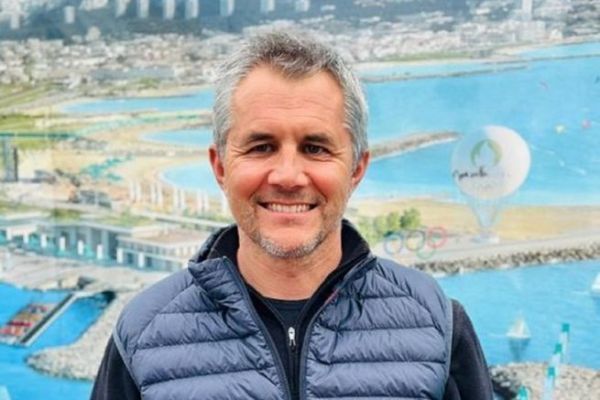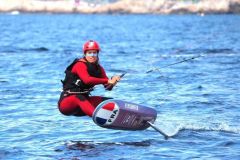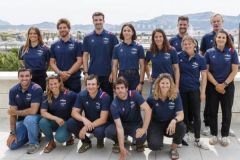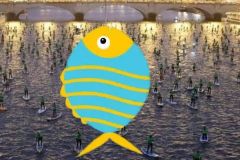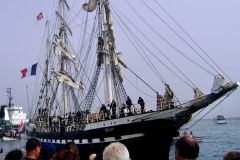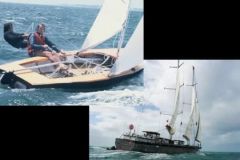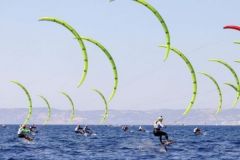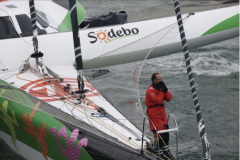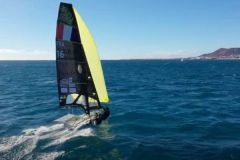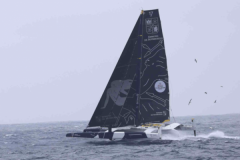Dimitri Deruelle, the competition area coordinator for sailing events for Paris 2024, explains his background and the challenges he faces in organizing the Test Event and the Olympic Games.
Dimitri, tell us about your career in competitive sailing
I discovered sailing by chance. It was my father, a winegrower, who pushed my brother and me into the world of regattas. After starting out in Optimist at the Les Lecques club, I moved on to 420, 470 and then 49er. I twice took part in the Olympic Games, in Barcelona in 1992 on a 470, then in Sydney in 2000 on a 49er. I have 2 world championship titles and 2 victories in the Tour de France à la Voile. I must have accumulated around 500 participations in national and international competitions.
Then you decided to share your experience...
Absolutely, I've decided to make a living from my knowledge of events as a coach and organizer. I bring my expertise to the coordination of events on the water. Among other things, I've been entrusted with positions as nautical stage manager for in-water shows, and I work with the Sail GP organization for events in France. I've also worked a lot with the Pôle France as a trainer.
What's your role in organizing the sailing events for the 2024 Olympics?
I was lucky enough to join Paris 2024 at the beginning of the year. My job is to coordinate the entire maritime approach to the Olympic Games. This concerns both the events that will take place in 2024, but also the Test Event that takes place in July 2023, as well as the arrival of the Belem in the Vieux Port with the Olympic flame on board.
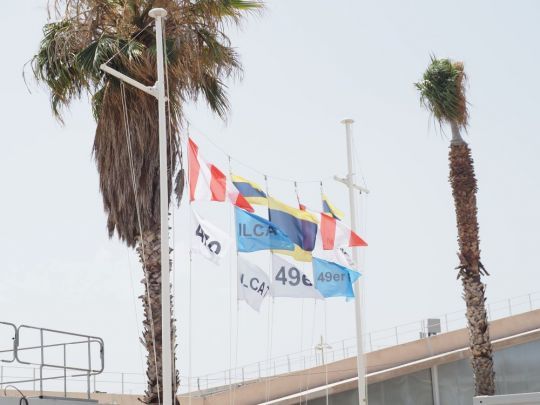
We're a team of around ten permanent staff, which should grow to around forty. And I'm lucky enough to work with Sylvie Eyraud, who has been my right-hand woman for several years.
In concrete terms, what does it involve?
I have several missions. My first mission is to manage the race course, which is a very busy activity. I also have to bring my experience to bear to ensure that spectators get the maximum benefit from the regatta rounds. We need to bring the races closer to land, by creating a spectator zone on the beach next to the Olympic marina.
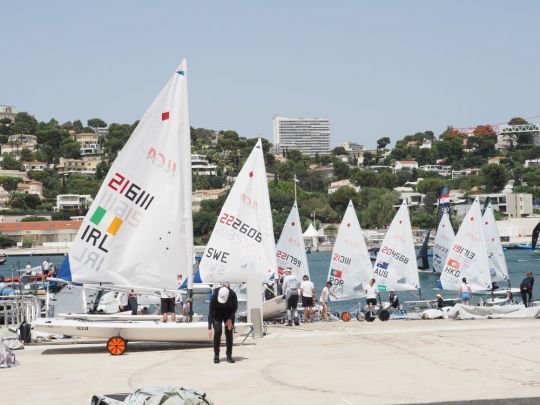
I'm also in charge of coordinating the various institutions involved in preparing the event: Maritime Affairs, DDTM, and the Fire Brigade. The events are subject to a declaration of nautical manifestation. The Préfecture Maritime also coordinated and anticipated many nautical points before my arrival.
Sea traffic must be fluid and safe. Marseille is a major seaport with a lot of traffic. For the duration of the races, we had to slightly deviate the trajectory of the ferries calling at Marseille. The same applies to commercial traffic, which is made up of container ships and freighters.
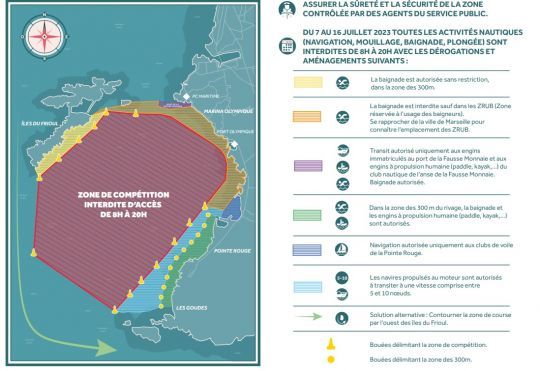
We also had to deal with the RTM shuttle service to the Pointe Rouge.
There were also numerous exchanges with local fishermen. Agreements had to be reached. The sea is their livelihood. We all have to adapt to find solutions.
From your point of view as a seasoned racer, what will the Marseilles race course look like?
The rade sud is a very specific stretch of water, offering varied and highly changeable conditions. When the Mistral wind blows, the swell is fairly strong and asymmetrical, requiring a great deal of support regulation. If it's an easterly flow, the site effects are very strong, the sea remains flat but the wind is unstable in strength and direction.
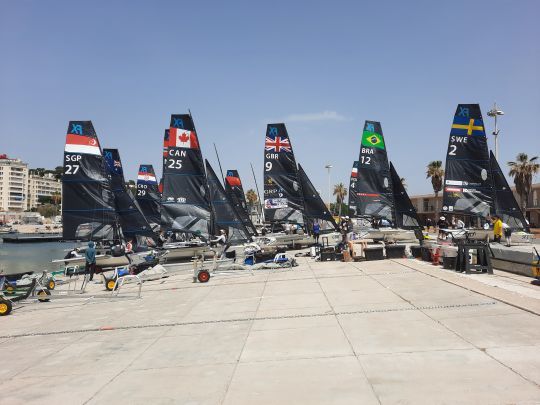
Forecasts, based on analyses for the same period in previous years, are rather optimistic.
How do you ensure the safety of a stretch of water for such an event, which brings together dozens of nations?
Safety is one of the major challenges of the on-water events. A security plan has been put in place to ensure the integrity of the athletes in the face of threats of attack from the sea or land. We have the resources of the French government to ensure that the area is watertight.
We have a medical staff dedicated to sailing. The marina also has to be secured at every entry and exit. This represents the control of 400 boats to be secured and parked.
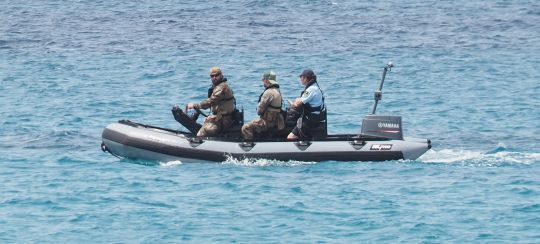
What resources are made available to foreign nations to enable them to train?
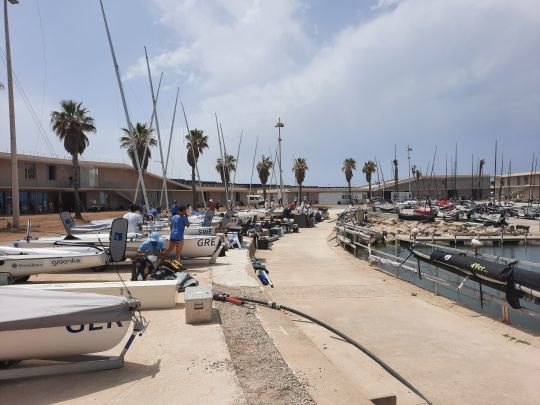
The city has set up sites to accommodate delegations wishing to train in Marseille. These CPJs, for Centre de Préparation pour les Jeux, are based on the Pointe Rouge and the Ile du Frioul.
How can we limit the impact of such an event on the environmental eco-system of Marseille's harbor?
We have a duty as organizers to be vigilant about ecological aspects. The harbor has several artificial reefs, which are refuge areas for numerous species.
Almost half of the course buoys will be autonomous, maintained stationary by electric motors, without anchoring. And almost 30% of the fleet of support boats and organizers will also be equipped with electric motors.
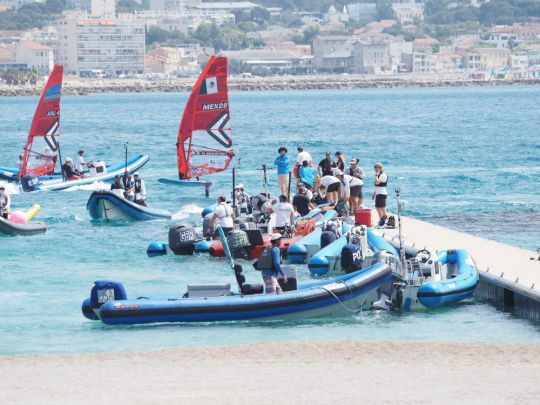
We worked with the nearby Calanques National Park. We also identified the harvesting zones for professional fishermen.
How will the general public be able to follow the events?
The spectator zone will be accessible for 25 euros per person, one of the cheapest seats at the Olympic Games. Several giant screens will be installed, and some passenger boats will be accessible by reservation.
